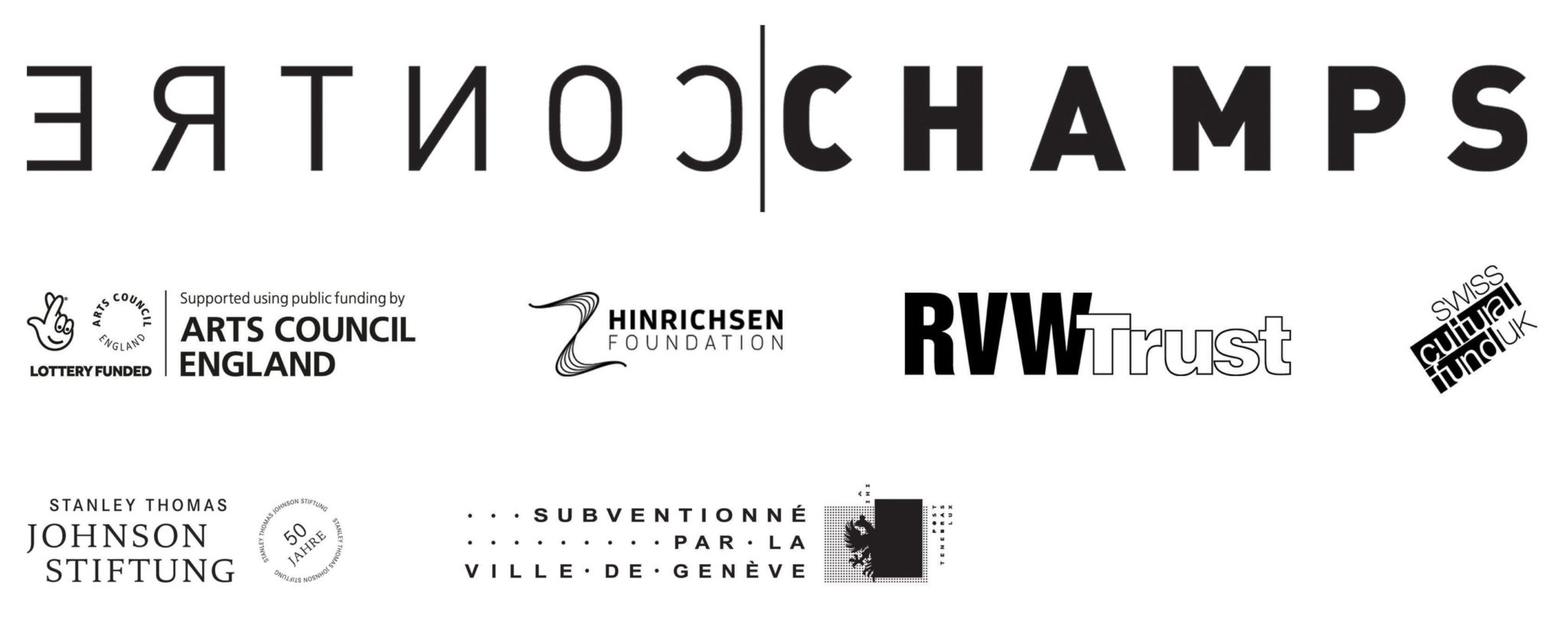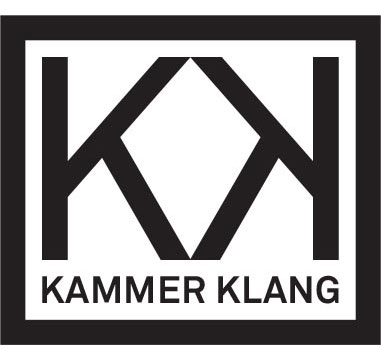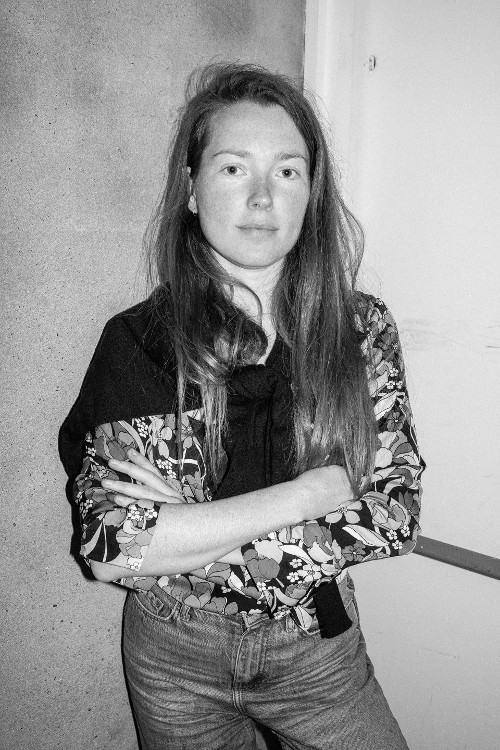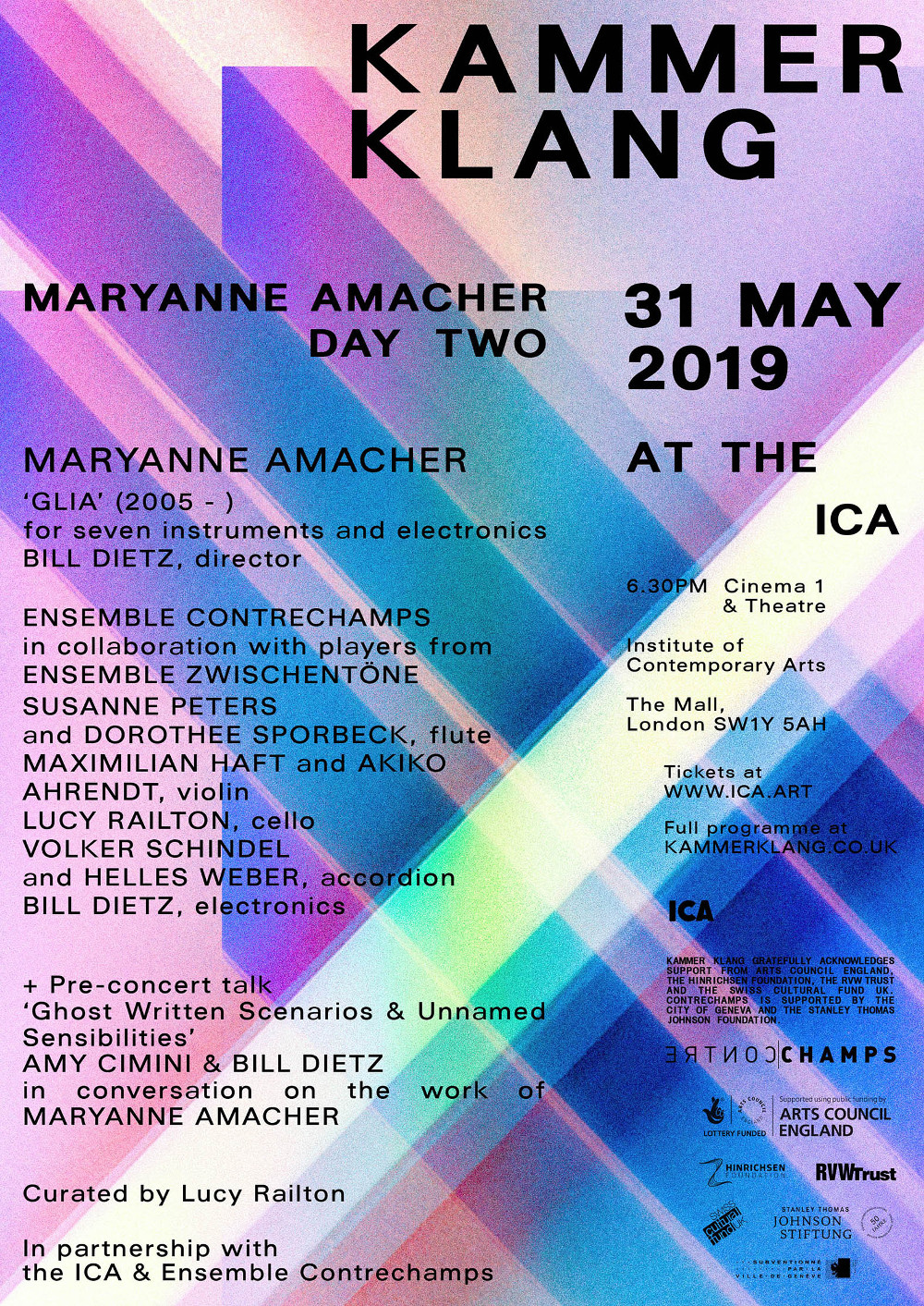
PROGRAMME
19.00 Cinema 1
As part of a series of programmes devoted to the work of Maryanne Amacher, and preceding the UK premiere performance of GLIA (2005), Amacher’s former collaborator Bill Dietz and musicologist Amy Cimini present a talk entitled ‘Ghost Written Scenarios & Unnamed Sensibilities’, contextualising GLIA within Amacher’s body of work, and discussing her approach to installation and instrumentation.
/
20.00 Theatre
20.30 concert begins
Concert running time: 75 mins
Maryanne Amacher, GLIA, 2005 (UK premiere)
Ensemble Contrechamps & Zwischentöne
Susanne Peters and Dorothee Sporbeck, flute
Maximilian Haft and Akiko Ahrendt, violin
Lucy Railton, cello
Volker Schindel and Helles Weber, accordion
Bill Dietz, sound engineer
/
This is the final part of the Maryanne Amacher programme, started on Thursday 30 May with a screening of Charles Atlas’ Torse accompanied by Bill Dietz & Amy Cimini in conversation.
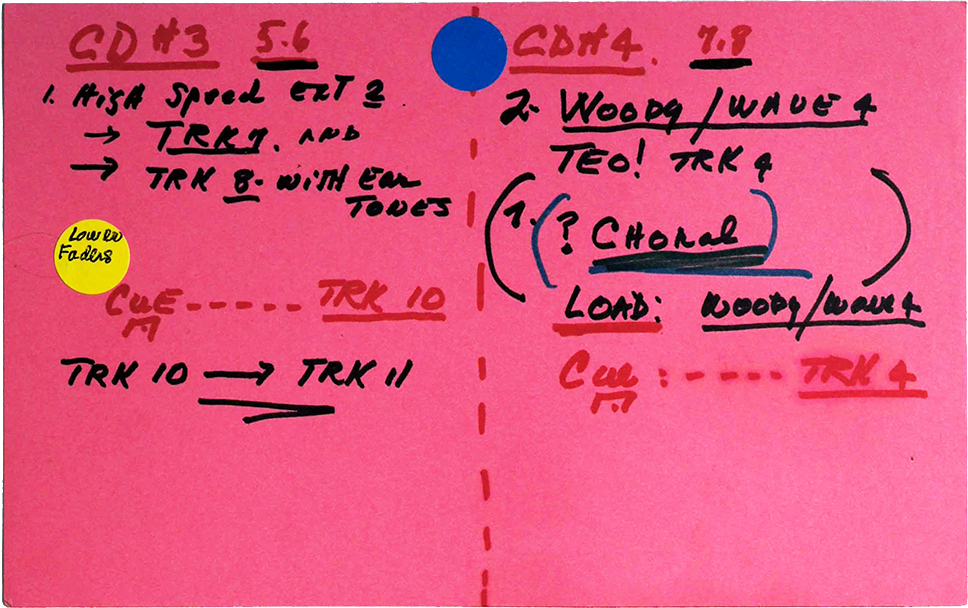
Compositional notecard by
Maryanne Amacher for GLIA, 2005.
© Maryanne Amacher
Programme
GLIA (named after the brain cells which assist in neurotransmission between synapses) was performed only once during Amacher’s lifetime, at the Berlin ‘media-art-laboratory’ TESLA in 2005. This premiere performance was directed by Amacher, assisted by the then director of Ensemble Zwischentöne Peter Ablinger, and Bill Dietz, who succeeded him. With GLIA, Amacher imagined the listener as a sort of ‘glial’ interface between the electronic and acoustic instrumental elements of the work. She imagined the otoacoustic emissions created in the ears of the listener (‘ghost-written’ by the replica ‘ear tones’ emitted by the electronics and instruments) as this ‘neural interface’.
A week-long residency in the ICA Theatre by Dietz and members of Contrechamps and Ensemble Zwischentöne enables the development of this reconstruction of GLIA. In 2011, Dietz spent a month undertaking intensive research at Amacher’s former home in Kingston, New York, and found adequate source materials to enable the first reconstruction of GLIA, which took place in 2012 at the Hamburger Bahnhof-Museum für Gegenwart in Berlin. This initial reconstruction was part of a wider effort by Amacher’s friends and collaborators to address the posthumous legacy of the artist’s work after her sudden death in 2009. The performance of GLIA at the ICA forms part of this collective interpretive re-presentation of Amacher’s practice.
/
Three years after Amacher’s death in 2009, a group of her former collaborators joined forces under the name Supreme Connections to address the posthumous life of the composer’s work. As part of this group, Dietz and Cimini have sought to further the complexities and nuances of Amacher’s practice, its response to site, and her concept of ‘perceptual geography’ as an approach to composition. As well as exploring Amacher’s methods of staging works, Supreme Connections present talks, seminars and workshops activating the composer’s ideas.
Maryanne Amacher
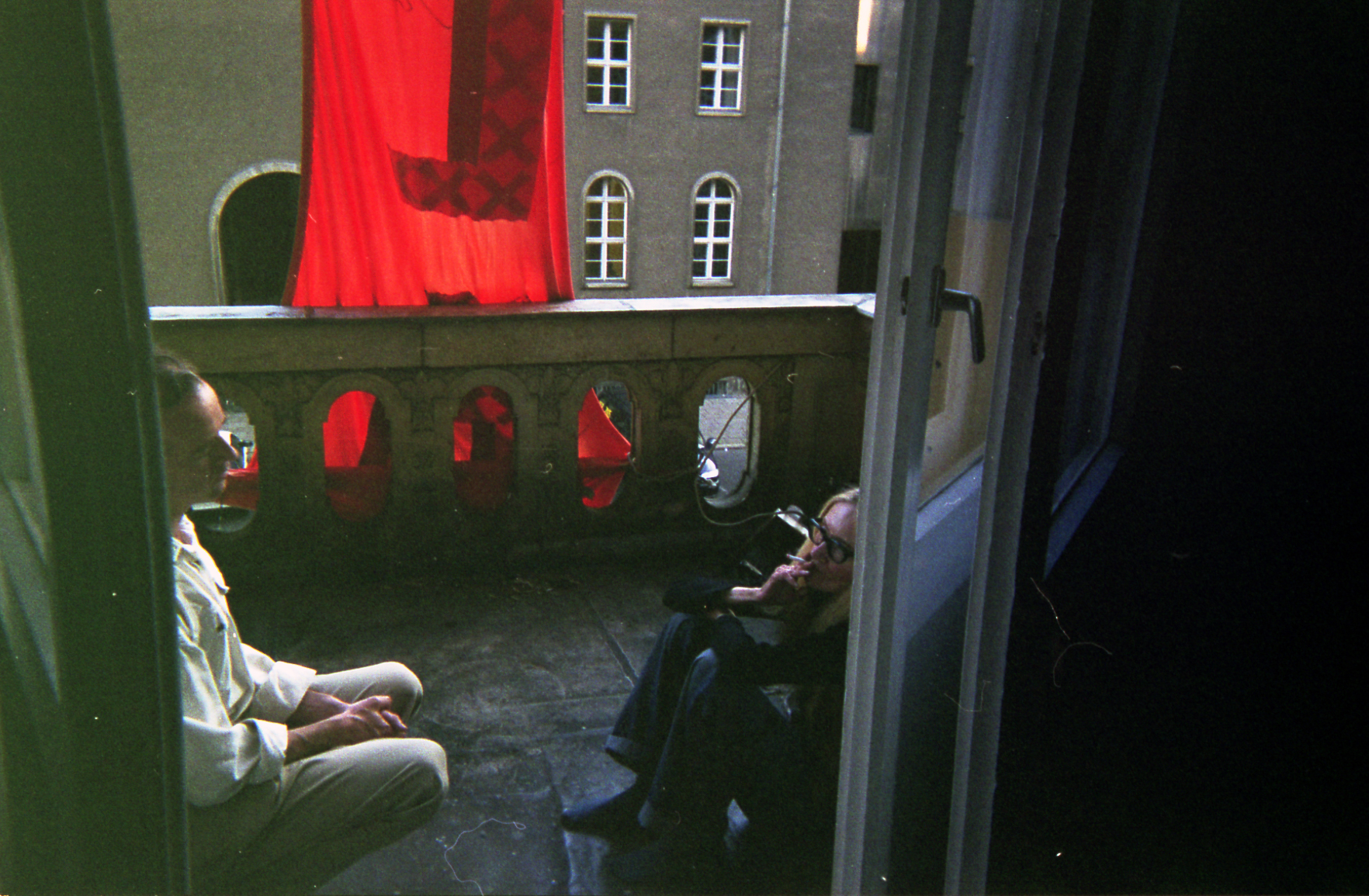
Maryanne Amacher, Berlin, 2005 (also captured — Peter Ablinger)
photographed by Bill Dietz
Maryanne Amacher was born in 1938 in Kane, Pennsylvania. She enrolled in the University of Pennsylvania in 1955, where she studied with composer and theorist Constant Vauclain and composers George Rochberg and Karlheinz Stockhausen. Amacher went on to hold a series of fellowships – at the University of Illinois’ Experimental Music Studio (EMS), MIT’s Center for Advanced Visual Studies (CAVS), SUNY Buffalo, Radcliffe, the Capp Street Project in San Francisco and many others, including international fellowships. After meeting John Cage at the University of Illinois in 1968, she went on to collaborate with him on Lecture on the Weather (1975) and later created Close Up (1979), the sound component for Cage’s Empty Words (1974). In the late 1970s and early 1980s, Amacher developed ‘Music for Sound-Joined Rooms’ and ‘Mini Sound Series’, presentational models for how her subsequent work should be ‘staged’. During the early 1980s, Amacher also worked on the materials for a multi-part drama originally imagined for TV and radio simulcast called Intelligent Life. While never fully realised, Intelligent Life reveals much of Amacher’s thinking on music and the advancement of potentialities for future listeners, transcending the social and physiological limitations of music as we know it. In the 1990s, Amacher continued to work internationally, and in the US she was commissioned to compose a large-scale work for the Kronos Quartet, received a Guggenheim Fellowship, performed at Woodstock ’94, and released her first CD on Tzadik (Sound Characters, 1999). In the 2000s, she participated in the Whitney Biennial (2002), joined the faculty of the Milton Avery Graduate School of the Arts at Bard College, and released a second CD with Tzadik (Sound Characters vol. 2, 2008). In 2005 she received Ars Electronica Foundation’s Golden Nica, their highest honour. Amacher died in Kingston, NY after sustaining a head injury and a subsequent stroke during the summer of 2009.
Ensemble Contrechamps
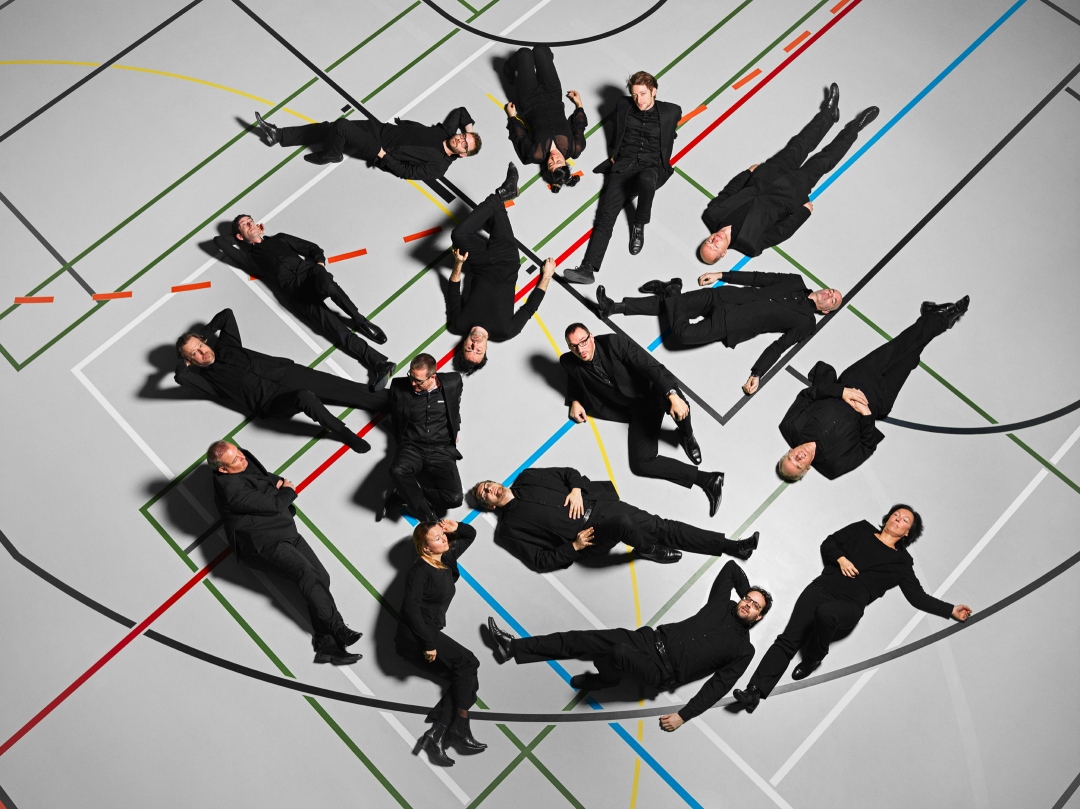
The Ensemble Contrechamps is a Geneva-based group of soloists who have specialised for over 40 years in the creation, development and diffusion of 20th- and 21st-century instrumental music. The group’s artistic director is the percussionist Serge Vuille. Since its creation, the ensemble has worked closely with a large number of composers (including Pierre Boulez, Rebecca Saunders, Brian Ferneyhough, Beat Furrer, Klaus Huber, Michael Jarrell and Matthias Pintscher) and also with a new generation of creators (including Rebecca Glover, Fernando Garnero and Paula Matthusen). Recent works have been commissioned by Chiyoko Szlavnics, Jacques Demierre, Bryn Harrison, Christine Sun Kim, Christopher Trapani, Abril Padilla and Massicot. The ensemble has recorded more than twenty albums, and in 2019 and 2020 will release two portrait albums in surround sound, one of Chiyoko Szlavnics and the other of Bryn Harrison, both under the Barcelona-based label Neu Records.
Bill Dietz
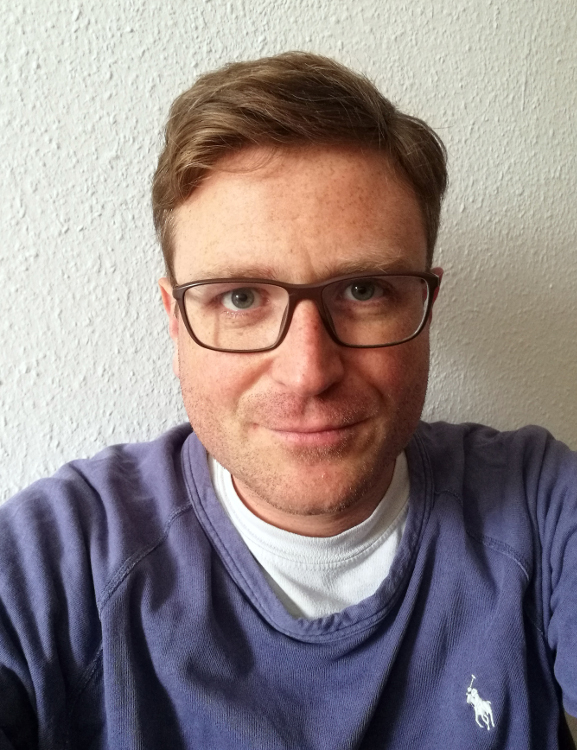
Bill Dietz is a composer and writer, born in Arizona, and living in Berlin since 2003. Since 2012, he is co-chair of the Music/Sound Department in Bard College’s Milton Avery Graduate School of the Arts. His artistic and theoretical work centers on reception, specifically on listening – its histories, forms, and performance. The work is often presented in festivals, museums, and academic journals, but also in apartment buildings, magazines, and on public streets. Large-scale works have been realized in sites such as Le Corbusier’s “Cité radieuse” in Marseille, where he worked long-term with inhabitants of the apartment building to articulate social structures with sound, or along the entire length of “Im Stavenhof,” a street in Cologne along which he synchronized all participating inhabitants’ home stereos. From 2007 to 2015 he was the artistic director of the Berlin-based “Ensemble Zwischentöne,” organizing numerous festivals and concert series. In 2014 he co-founded the online magazine Ear │ Wave │ Event with Woody Sullender. He has published two books of listening scores – one on his “Tutorial Diversions” series, meant to be performed at home; and the other, made up of “concert pieces,” based on historical and contemporary audience behavior and staging.
Amy Cimini
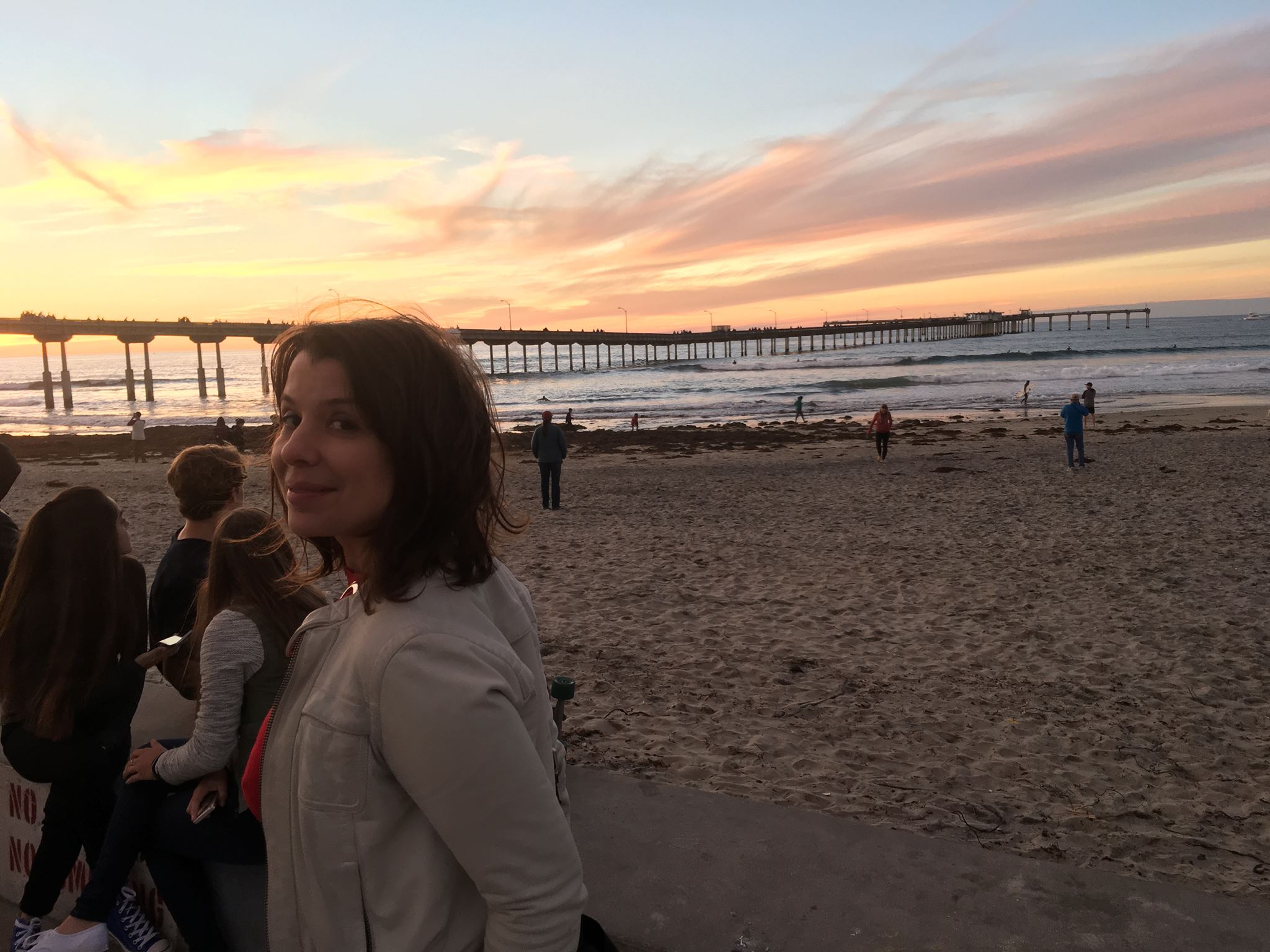
Amy Cimini is a violist and musicologist based in San Diego, CA. Her research, teaching and performance engage 20th-century philosophy and political thought with an emphasis on embodiment and ethics in experimental practice. Her musicological writing has appeared in Gamut, Contemporary Music Review, Sound Studies, boundary 2, Twentieth-Century Music and The Opera Quarterly. She is currently Assistant Professor of Music at UC San Diego and is happy to be finishing her first book, titled Wild Sound, about the musical thought of Maryanne Amacher. As a violist, Amy is a founding member of the chamber music collective Till by Turning and the improvising duo Architeuthis Walks on Land with bassoonist and composer Katherine Young. Touching Extremes notes the duo’s ‘manifest improvisational bravura (of the ruthless variety)’. Recently, Amy has enjoyed premiering Anthony Braxton’s operas Trillium R and Trillium J as a member of Braxton’s Tri-Centric Orchestra and touring the US and Europe in support of Architeuthis Walks on Land’s third record, The Surveyors (Carrier 2013).
Lucy Railton
